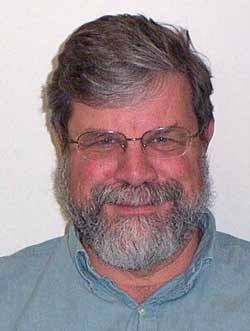By John Manning, director of San Juan County Health & Community Services
Many of you joined us in the first round of Community Conversations to discuss what makes the quality of life in the islands so special. The next round of meetings will focus on defining what public services are essential to preserving that quality of life.
What is “essential?” Webster’s says it is something that is necessary, indispensable, or fundamental. In discussing what is essential, we want to consider a broad definition of “public services.” That is, not just government services, but services provided to the public as a whole.
These could include those provided by public utilities, such as OPALCO and CenturyLink, as well as services from special governmental districts – fire districts, school districts, cemetery districts, etc.
The discussion of direct government services should include federal, state and local government services including maintenance of parks, ferries, and all levels of law enforcement. At the local level, the county provides some of these services plus land use, public health, mental health, courts and legislative authorities.
We want to hear your ideas about which of these services are essential and which may be nice but are not essential to protect our way of life in San Juan County.
Over 150 years ago, a visitor to this country observed that one of the unique qualities of the citizens was that they did not wait for the government to solve their problems. Rather, they organized themselves in a variety of associations, companies and corporations to meet local needs and solve local problems.
In San Juan County we have more than 100 not-for-profit corporations providing public services. These include everything from child care to senior services, from performing arts to oil spill clean-up. So the non-profit sector also needs to be included in any assessment of “essential public services.”
Additionally, a multitude of services are provided through partnerships between the county and not-for-profit organizations, such as the county’s Senior Service Coordinators and the San Juan Senior Services Council, the Health Department and the Family Resource Centers, and County Parks and Lopez Chamber of Commerce.
We’d love to hear your ideas about forming new partnerships and other new ways to provide needed services – and this provides a good transition into the next section of the discussion.
The final portion of our conversation on public services will concentrate on just those services provided by county government. We will ask you to tell us what we are doing well, how we could do it better; and what we are not doing so well and whether we should continue to do it. Can we, or should we, transfer responsibility to non-governmental entities and rely on private efforts?
The maintenance of our quality of life may depend on some public services, but continued public support is required to ensure that these services are available. Whether that support is provided through general government, special districts or private not-for-profit organizations, they all rely on public participation.
Our second conversation sessions will be held on Lopez, San Juan and Orcas Islands and will take place the week of March 4. You can find the complete meeting schedule, summaries of the first sessions, and even participate in the conversation via the Conversation Blog on the San Juan County website at: http://sanjuanco.com/conversation .
— Editor’s note: Pubic health director John Manning is serving as facilitator of the council’s Community Conversations series.




